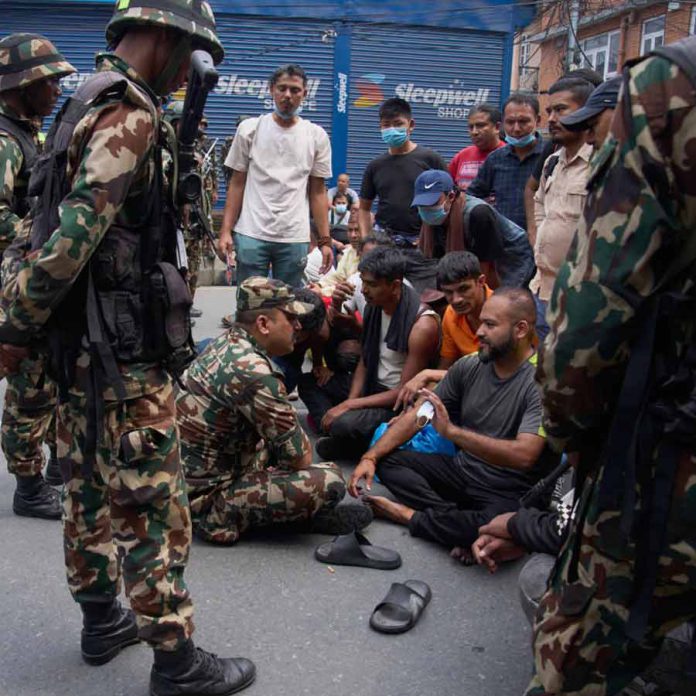Over 13,000 prisoners escape during violent protests; cross-border infiltration fears trigger high alert in Bihar, Uttar Pradesh, and West Bengal.
Synopsis:
Thousands of prisoners freed in Nepal unrest spark security alert in India as fugitives cross borders into Bihar, Uttar Pradesh, and West Bengal.
Qalam Times News Network
September 12, 2025 – Kathmandu/Siliguri
More than 13,000 prisoners were freed from jails across all 77 districts of Nepal during violent anti-government demonstrations that toppled Prime Minister KP Sharma Oli, officials confirmed. Among those released was Rabi Lamichhane, former Deputy Prime Minister and chairman of the Rastriya Swatantra Party, who walked out of Nakkhu Central Jail in Lalitpur. The RSP remains the fourth-largest party in the Nepalese Parliament.
Alongside the mass release of prisoners, major judicial institutions were targeted. The Supreme Court, the Attorney General’s office, and at least 17 lower courts were destroyed. A senior Supreme Court functionary expressed shock, noting that sensitive cases and decades-old records had been reduced to ashes, raising questions about deliberate targeting.
Deadly Clashes in Correctional Homes
Amid the chaos, inmates exploited the unrest to break out of jails, sparking violent confrontations. According to The Rising Nepal, five juvenile inmates died when police opened fire during clashes at the Naubasta Juvenile Correctional Home in Banke district. Four others were critically injured. Officials reported the violence erupted when detainees attempted to seize weapons from security personnel.
The escalating disorder prompted the Nepal Army to impose restrictive orders nationwide, followed by a curfew, to regain control after Oli’s resignation on Tuesday.
Cross-Border Security on High Alert
Reports suggest many escaped prisoners have crossed into India through porous borders in Bihar and Uttar Pradesh. The Sashastra Seema Bal (SSB) has already detained at least 30 fugitives. In North Bengal’s Panitanki border near Siliguri—where the Mechi River forms a natural divide without fencing—SSB jawans have tightened patrols to prevent further infiltration.
The West Bengal administration has directed local police stations to maintain heightened vigilance. Intelligence surveillance has also been intensified, with strict orders to arrest anyone attempting illegal entry.
Indian Citizens Returning in Fear
The crisis has left hundreds of Indians stranded in Nepal, many of whom began crossing back into West Bengal by Thursday morning. Panic was visible on their faces, according to officials. By afternoon, over 100 individuals had returned after thorough document verification by SSB officers.
Darjeeling’s Superintendent of Police, Praveen Prakash, inspected the Panitanki border and assured locals that help desks, helplines, and police assistance centers had been activated. “There is no reason to panic. We are monitoring every movement,” he said.
Among the returnees was Tapas Jotdar from Katihar, Bihar, who described the dire conditions still prevailing in Nepal: “Food is scarce, gas is unavailable, and my family members are still trapped there. I managed to bring my daughter back, but I am deeply worried.”







